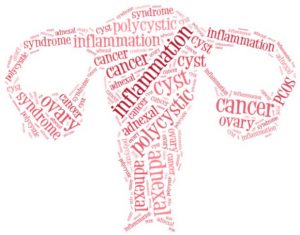
PCOS diet: Foods to eat and avoid
Polycystic ovary syndrome symptoms can be annoying for some women and a serious problem for others, but many sufferers have discovered that a PCOS diet can help alleviate some of the discomforts.
Polycystic ovary syndrome, or PCOS, is a hormonal problem that has an impact on the ovaries and other parts of a woman’s body. It is most common during childbearing years and requires treatment, otherwise, it could lead to serious health implications such as infertility and heart disease. Continue reading…
Polycystic ovarian syndrome (PCOS) in women is linked to ADHD and an increased risk of autism in children. A study examined the link between ADHD (attention deficit hyperactivity disorder) and PCOS.
The study included 40 women aged 18 to 35 with PCOS, who were compared to 40 healthy women with normal menstrual cycles. Current and childhood ADHD symptoms were assessed using the Adult ADHD Self-Report Scale and Wender-Utah Rating Scale. Continue reading…
Polycystic ovarian syndrome (PCOS) is a set of symptoms that are caused by elevations of androgen (male hormones) in the female body. It includes symptoms like a lack of menstruation or heavy periods, excess body or facial hair, acne, pelvic pain, and a patch of thick, dark, velvety skin. The reasons for its occurrence stem from a combination of environmental and genetic factors, though the exact reason for its cause is not understood. The following are likely factors contributing to the development of PCOS:
Excess insulin: The primary hormone involved in glucose metabolism and secreted by the pancreas. Excessive amounts of this hormone occur in states where bodily tissue becomes resistant to its effect, leading the pancreas to produce more to compensate. Increased amounts of insulin in the body may affect the ovaries by increasing androgen production, interfering with the process of ovulation. Continue reading…
Polycystic ovary syndrome (PCOS) increases the risk of heart disease and type 2 diabetes, but cinnamon may help in treatment. Polycystic ovary syndrome is a common hormone disorder that affects women during their reproductive age. Compared to women without the syndrome, women with PCOS have been found to be at greater risk for heart disease, type 2 diabetes, reproductive disorders, and cancer of the uterine lining.
Women with PCOS have higher levels of male hormones and this imbalance in hormones can cause changes in menstrual cycles, infertility, weight gain, acne, excess hair on the face and body, and thinning of the hair on the scalp. Nearly five million women across America have PCOS. Continue reading…
Polycystic ovary syndrome (PCOS) is a hormonal problem that affects the ovaries as well as other parts of the body. PCOS is most common in women of childbearing years, and if left untreated it can result in serious health problems.
An egg is released during menstruation when it does not become fertilized by sperm. Hormones are required in order to release the egg, but when there are not enough hormones produced, a woman may not ovulate. When ovulation does not occur, fluid-filled sacs – cysts – can form on the ovaries. Cysts produce their own hormones known as androgens – male hormones that can be found in women, too. High levels of androgens can cause the symptoms associated with PCOS and affect a woman’s menstrual cycle. Continue reading…